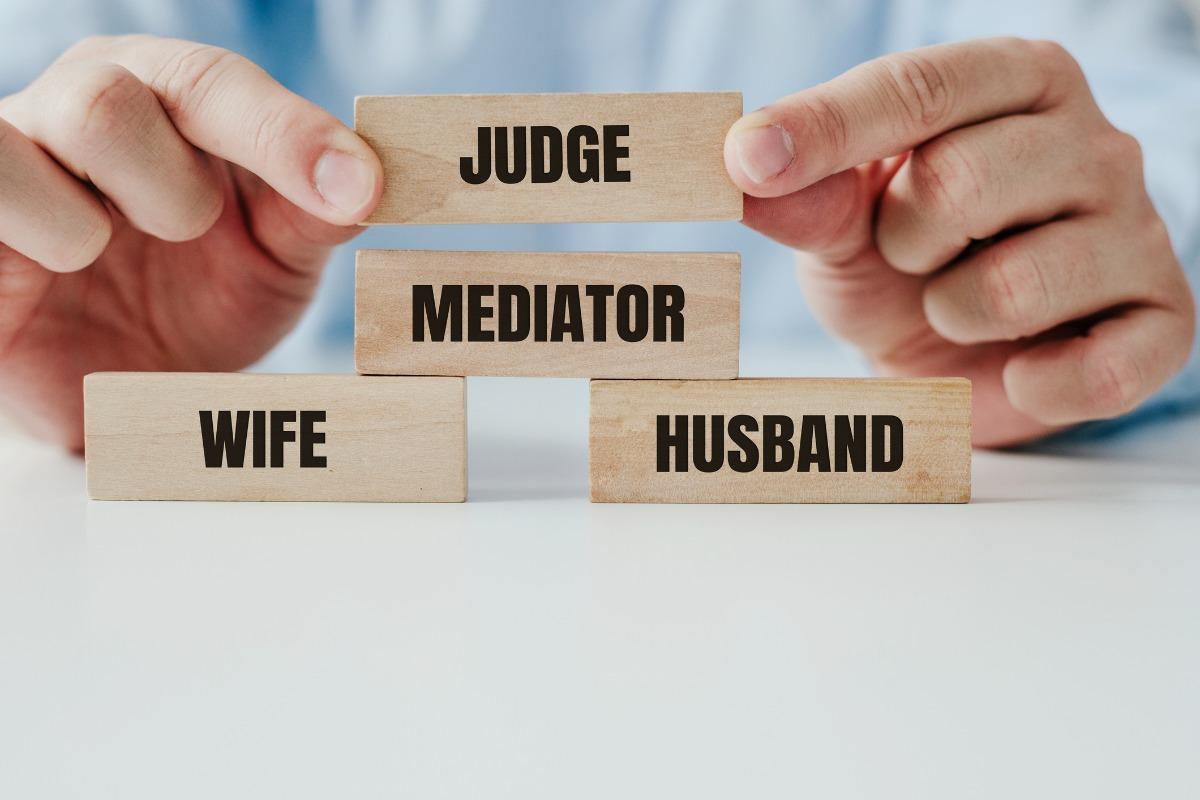
- posted: Jun. 25, 2021
The New Jersey Court Rules require that parties to a divorce have been advised of the option to use mediation to resolve their divorce. Mediation can be done with both parties acting pro se (being unrepresented by counsel) with the mediator assisting the participants to discuss their concerns and arrive at an agreement. Other times, individuals can be represented by lawyers at a mediation. Divorcing couples can use the mediator prior to filing the divorce complaint. The mediator does not represent either party. The attorney acting as a mediator conducts a cooperative process to help the couple together make the transition out of the marriage and for their future. The Mediator works to “facilitate” an agreement.
Some benefits of mediation are that the discussions are private and the couple can participate directly with each other about the issues facing them. The mediator attorney provides expert guidance on the legal issues and intends to help the parties reach a final divorce agreement which is legally sound. One is not “forced” to agree in Mediation however, it is typically an excellent way to settle.
The attorney who is the mediator cannot file the divorce complaint or appear for the final judgment. Each party may want his/her own attorney to review the settlement agreement to prepare the pleadings for divorce and to appear in Court for the final judgment. However, the core issues; i.e., custody, alimony, equitable distribution, which is often the basis for most of the litigation is already done (the Property Settlement Agreement).
An extremely effective method of resolving a case is my using/bringing your lawyer to Mediation. It can help achieve an agreement faster and more effectively as your attorney can quickly guide you to a resolution. Complex matters with complex financial issues also are best resolved in Mediation with the experts working together to achieve good numbers and a good resolution.
In complex cases or where there is an imbalance of power mediation can also occur with attorneys for each party present. This is actually quite effective and usually has a better global result.
Mediation can be a less expensive alternative, faster, and very successful. If the parties have been able to share and express their common goals and interests with or without an attorney, there can be success with the couple adhering to their agreement for the post-divorce relationship.
The Property Settlement Agreement normally contains provisions for custody, parenting time, support, division of property, medical and insurance coverage. Each family has unique issues which become part of the Property Settlement Agreement.
A key ingredient for successful mediation is full, honest disclosure and cooperation. This is important for resolution, not only for financial matters, but also for custody and parenting time. In a divorce which is not mediated, the Court will require a Case Management schedule and provide dates for discovery and evaluations. Custody mediation typically occurs at the beginning of a case with a Court-appointed mediator. If the case does not settle as to finances, mandatory economic medication is also ordered, but later in the case. It is standardly much less expensive even with lawyers to resolve everything with the help of a mediator.
For a consultation call Helfand & Associates at 973-539-1000, 0ur experienced matrimonial attorneys, handling all aspects of Family Law. The firm handles alimony, child support, child custody for fathers and mothers, complex financial and business discussions in divorce as well. The firm works with clients throughout New Jersey and New York. New Jersey offices located in Whippany and Paramus.
Tanya N. Helfand, Esq. is a Certified Matrimonial Attorney, a Mediator and Panelist in the Morris and Essex County ESP Programs. The firm welcomes your questions and inquiries at [email protected]. We handle cases in Bergen, Essex, Morris, Hudson, Union, Somerset, Sussex and other New Jersey counties.
- Alimony (15)
- Bankruptcy (4)
- Business (3)
- Child Support (10)
- Children (19)
- Citizenship (1)
- Civil Litigation (3)
- Collections (2)
- Court Orders (3)
- Court Procedure (4)
- Court Rules (6)
- Credit Cards (2)
- Custody (12)
- Debt (5)
- Debt Collection (2)
- Divorce (67)
- DUI (3)
- DWI (3)
- Expungement (1)
- Family Law (38)
- Fathers Rights (2)
- Guardian (3)
- Judgments (1)
- Lawsuit (1)
- Litigation (2)
- Personal Representative (1)
- School (1)
- Special Needs Trust (1)
- Taxes (3)
- Trust (1)
- Worker's Compensation (3)


